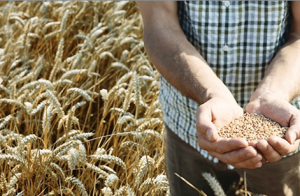On August, 10 2016 by Dr Sivan Cohen-Wiesenfeld pour l'Afauta et Israël Science Info
Polyploidy is commonly thought to be associated with the domestication process because of its concurrence with agriculturally favourable traits and because it is widespread among the major plant crops1,2,3,4. Furthermore, the genetic consequences of polyploidy5,6,7 might have increased the adaptive plasticity of those plants, enabling successful domestication6,7,8. Nevertheless, a detailed phylogenetic analysis regarding the association of polyploidy with the domestication process, and the temporal order of these distinct events, has been lacking3. Here, we have gathered a comprehensive data set including dozens of genera, each containing one or more major crop species and for which sufficient sequence and chromosome number data exist. Using probabilistic inference of ploidy levels conducted within a phylogenetic framework, we have examined the incidence of polyploidization events within each genus. We found that domesticated plants have gone through more polyploidy events than their wild relatives, with monocots exhibiting the most profound difference: 54% of the crops are polyploids versus 40% of the wild species.

Dr. Itay Mayrose and Ayelet Salman-Minkov
We then examined whether the preponderance of polyploidy among crop species is the result of two, non-mutually-exclusive hypotheses: (1) polyploidy followed by domestication, and (2) domestication followed by polyploidy. We found support for the first hypothesis, whereby polyploid species were more likely to be domesticated than their wild relatives, suggesting that the genetic consequences of polyploidy have conferred genetic preconditions for successful domestication on many of these plants.
Source Nature Plants, August 1st 2016




















